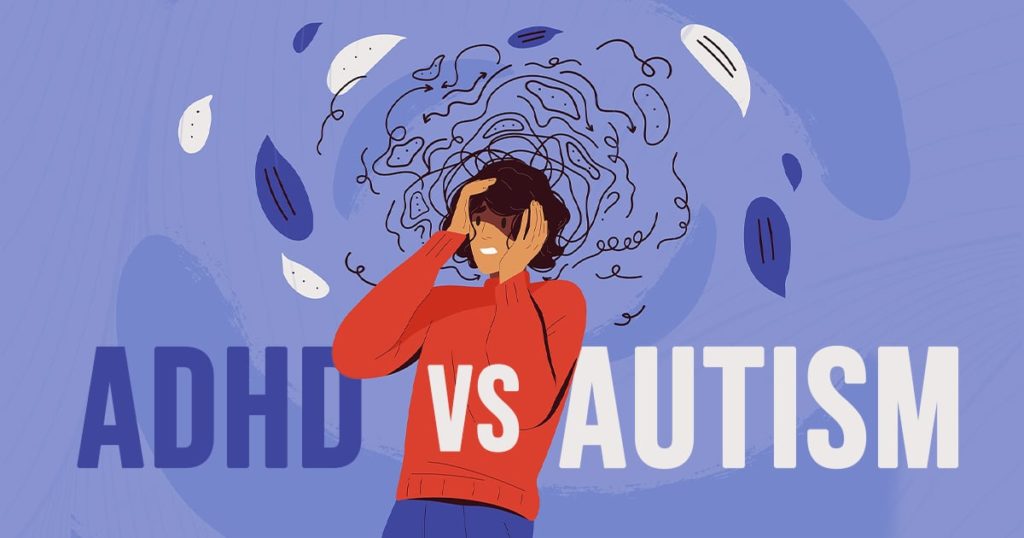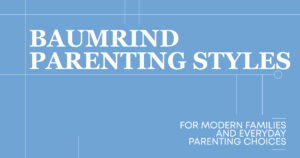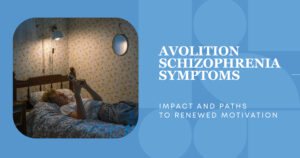Both ADHD and autism can have a striking resemblance to one another in terms of symptoms. Both of these conditions might make it difficult for teenagers to concentrate. They may act rashly or have difficulty expressing themselves. They may struggle academically and socially.
Although they have the same kind of symptoms, the two illnesses are very different from one another. Autism affects language, behavior, socialization, and adequate learning capacity. People with ADHD may have difficulty focusing, staying still, or stopping to consider their actions.
Children and young adults who receive the right diagnosis early are less likely to miss important development and learning. Teens and adults with these conditions can lead successful and happy lives. Keep reading to find out more about ADHD vs autism in this article.
What is ADHD?
ADHD is a neurodevelopmental condition that affects a large number of children between 2 and 18. Around 8.4% of children and 2.5% of adults have ADHD, as reported by the American Psychiatric Association (APA). It is diagnosed more frequently in males than in females by doctors.
Those with ADHD have trouble focusing their attention and controlling their impulses. They may have difficulty concentrating, remaining motionless, or stopping to consider their actions.
ADHD subcategories include:
- Being Inattentive
- Hyperactive-impulsive
- The above combined
As teenagers age, their ability to focus and control their urges may improve. Moreover, counseling can help young adults still experiencing symptoms learn how to cope with their disorder better.
What is Autism?
A person’s social interaction and communication capacity are impaired across various settings with an autism spectrum disorder. Although there is no known treatment, persons who get support may be able to make improvements in aspects of their lives that they find difficult.
Autism spectrum disorder is estimated to affect approximately 1 in 59 children in the United States, as the Centers for Disease Control and Prevention (CDC) reported.
ADHD vs. Autism Symptoms
It’s not uncommon for ADHD and Autism to be misdiagnosed as one another in their earlier stages. Both conditions may cause teens to have difficulty communicating and concentrating. Both illnesses, despite their resemblances, should be treated as separate entities.
Distraction and impulsivity, for example, are attention deficit hyperactivity disorder (ADHD) symptoms. Although they are not included in the diagnostic criteria for autism, most autistic individuals exhibit these characteristics. Autism diagnosis includes speech difficulties and quirks, which are not included in the ADHD diagnosis. Many patients with ADHD experience speech impairments. Let’s check out the differences and similarities below.
Autism Symptoms
- There may be a delay in speech development or an absence of spoken language.
- Inability to communicate and interact with others socially
- Rocking or pacing are examples of repetitive actions.
- Sensory difficulties (under- or over-reactive to sound, light, smell, taste, touch)
ADHD Symptoms
- Inattention (trouble in concentrating and focusing)
- Overreaction and impulsiveness (likely to make ill-advised statements or take action without thinking about it)
Symptoms They Both Have in Common
Many persons who have been diagnosed with either ADHD vs autism have symptoms that are similar or overlap. Both disorders can cause problems that aren’t mentioned as common symptoms but can significantly influence daily living.
Here are some of the signs and difficulties that persons with ADD/ADHD and autism frequently experience:
- Impulsivity
For instance, speaking out of context and jumping up when it’s not necessary.
- Lack of Attention to Detail
Distraction by external events is more common in ADHD while being distracted by one’s thoughts and ideas happen more in the case of autism.
- Executive Functioning Issues
A lack of ability to keep track of and prioritize jobs and projects
- Making Friends and Socializing can be Difficult for Them.
- Discrepancies and Limitations in Learning.
- Challenges to the Senses
This includes sensitivity to light, sound, and touch that is either excessive or excessively low.
- Immaturity of the heart
- Inability to control one’s feelings of rage and irritation
Even though these symptoms appear identical, they can have diverse underlying causes. For example, people with autism may have trouble making friends because they don’t know how to imitate speech or body language. Instead, impulsivity, a lack of self-control, or an inability to meet social standards are some of the most common causes of social difficulties in ADHD.
What is the Difference Between Autism and ADHD?
Regarding behaviors, autistic and ADHD-afflicted youngsters differ slightly from one another.
- Their attention spans are the first significant difference:
A youngster with autism may have difficulty focusing on a task that does not excite or engage them. They can lose themselves for hours on end if there is anything of interest to them. However, the attention span of a youngster with ADHD is likely to be brief, even if they are doing something they enjoy.
- After then, there’s a distinction in how teenagers with these conditions communicate. A child with each of these conditions may have difficulty socializing, although the difficulty manifests in different ways:
A youngster with autism may have difficulty expressing their feelings verbally and may not employ standard social cues like hand gestures or eye contact during a discussion. However, a youngster with ADHD may chatter nonstop, interrupt constantly, and fail to notice how their words influence others.
- Finally, when it comes to routines, children who have autism and ADHD may react in a variety of unique ways:
When a youngster with autism is given a schedule to follow, they may feel more secure. Changes, such as not reading a favorite book before dinner, may cause them distress or worry. However, teenagers with ADHD are generally not fans of regularity! They are more likely to feel bored, leading to impulsive behavior in a controlled environment like school.
ADHD and Autism Treatment for Teens in Southern California
Most research on autism and ADHD has concentrated on young people because that is when symptoms initially appear. To help adults, physicians have to gather from their work with children. However, the presence of autism vs. ADHD in adults has specific regards that aren’t present in just one of the conditions. Hillside Horizon for Teens in Southern California provides special care and attention for young adults with these conditions; to learn more, call us at 855-746-8378.





